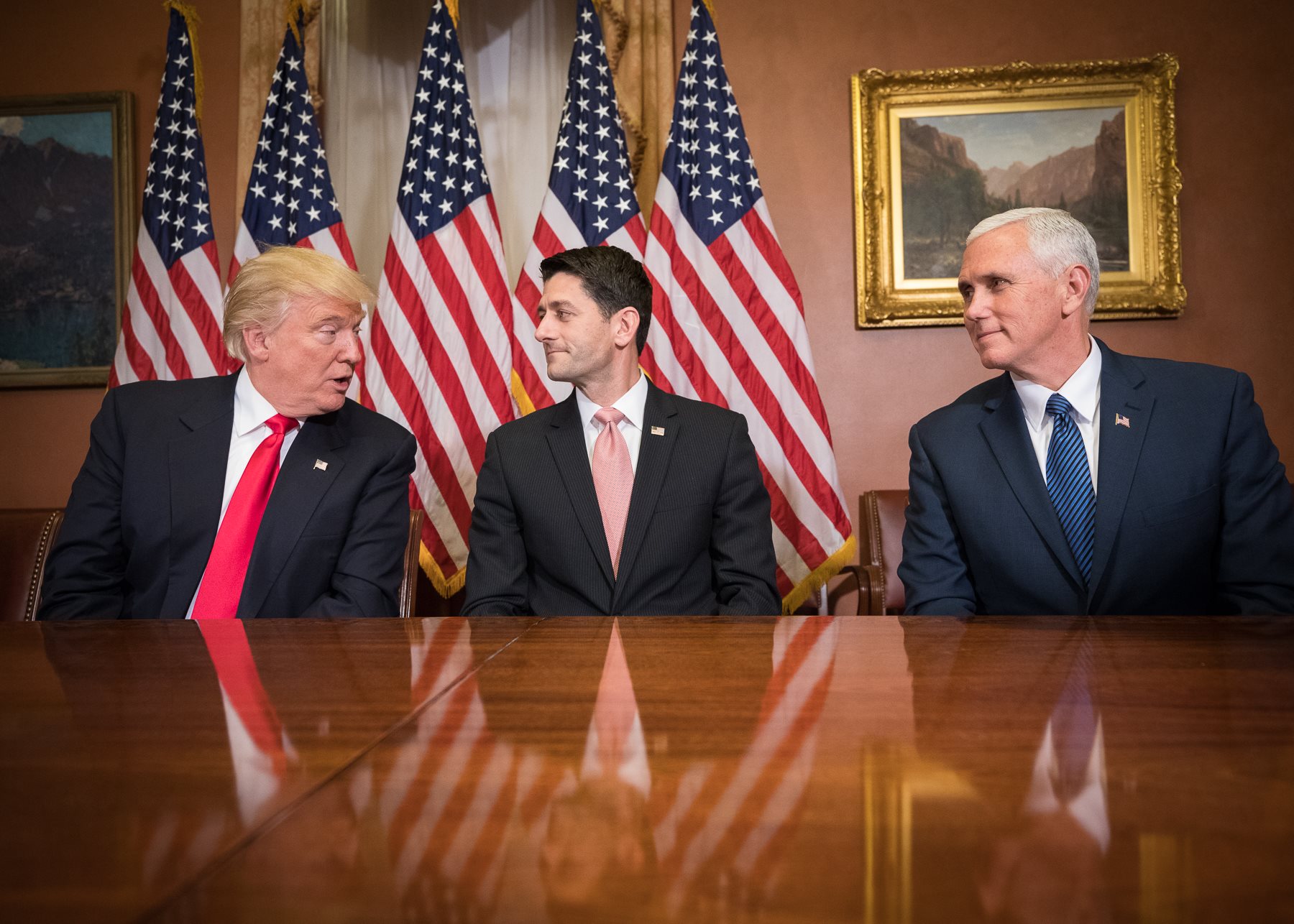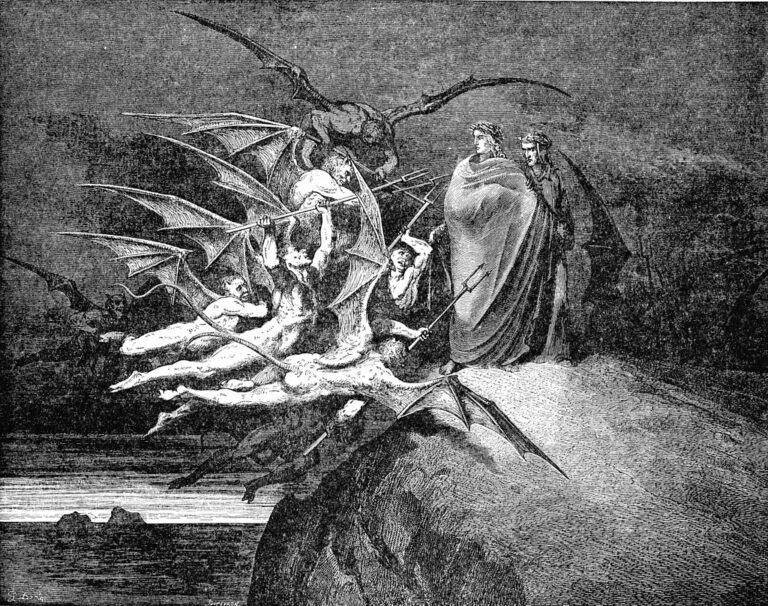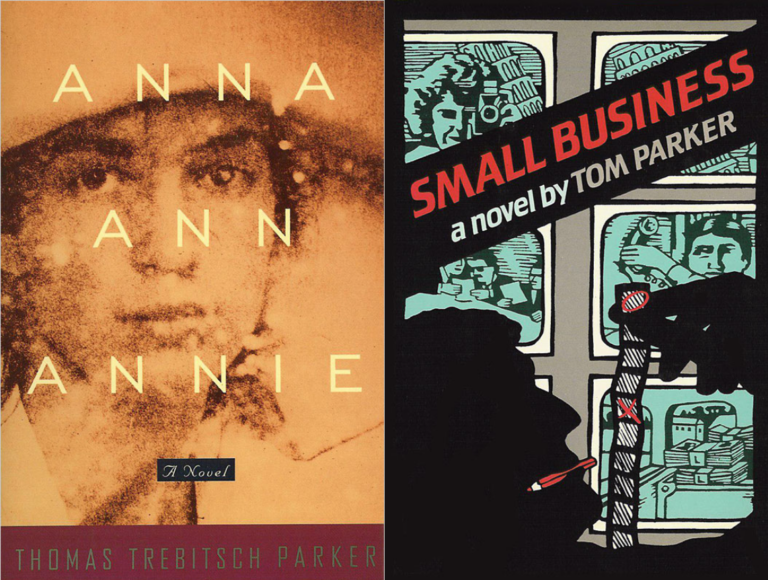Anticipating the State of Literature Under Trump: What to Look For

After an outpouring of reflections on the “literary presidency” of “reader-in-chief” Barack Obama, writers began to resist Donald Trump before he raised his hand in oath. It is an uneasy transition to see the Oval Office, occupied for eight years by a man who earned a Toni Morrison blurb for his book, passed on to one whose own ghostwriter turned on him.
But in this anxious moment, what should a writer or reader look for from the next administration? Are there signposts in the dark forest, markers on the trail?
Many saw a warning shot fired across the bow of the literary community in a report last week that the new Administration could eliminate federal funding for the National Endowment for the Arts and related agencies. This trial balloon, floated perhaps by the Trump team or Republicans in Congress to gauge levels of public outrage (which swiftly followed) or by conservative economists involved in drafting the plan and eager to brag of their newfound power, helps illuminate what may lie ahead.
While the President typically submits a budget blueprint by the first Monday in February, the power of the purse resides in Congress, where committee chairmen and leaders of the majority party set the course—and the spending levels—for each federal agency. Trump seems unlikely to override this particular Constitutional requirement, as he responded to a question from the Washington Post about funding for the NEA by saying “the Congress, as representatives of the people, make the determination as to what the spending priorities ought to be.”
This is not, literary observers might notice, good news. Congressional budget-cutters have ascended to top leadership positions, including Speaker of the House Paul Ryan, who has previously proposed eliminating federal funding for the NEA, stating its work goes “beyond the core mission of the federal government.”
Yet, despite Republican majorities in Congress for most of his two terms, the NEA saw a modest increase in funding under President Obama. Overall, however, funding has trended downward since a Bill Clinton-era compromise with Republicans in Congress that staved off elimination of federal funds for the NEA at the cost of dramatically slashing its budget. These cuts, of course, are a statement of principle and not of fiscal prudence, as federal funding for the arts is so small as to be nearly invisible to begin with.
Congress will have several bites at the funding-reduction apple within the first 100 days of the Trump presidency. The nation’s “debt ceiling” must be raised by March 16, an opportunity conservative caucuses on Capitol Hill have seized in the past to demand spending cuts to offset debt ceiling increases. In addition, the current “continuing resolution” funding the government is merely a stopgap that expires April 28, giving Ryan and his committee chairman wide latitude to remake agency budgets in their own slim-and-trim image. This will be a key date to watch, with negotiations likely continuing until the eleventh hour before a final budget is passed.
While the NEA may be the federal agency with the most direct impact on working writers, funding Literature Fellowships for almost 3,000 writers since its founding, there are other agencies whose budgets are worth the gaze of the literary community as April approaches. The Department of the Interior, for example, oversees the National Park Service and its Artist-in-Residence program, while the State Department’s Bureau of Educational and Cultural Affairs runs foreign exchange programs for writers.
Should a federally funded NEA continue to exist in the new Washington, the President’s choice to lead it will be the next major moment to watch. Under Obama-appointed Chairmen Rocco Landesman and Jane Chu, the NEA climbed from number eleven to number one among small agencies in a survey of best places to work in the federal government. The only rumored Trump pick has reportedly said he would turn down the job.
The Trump Hotel just a block from the White House occupies not only the site of the nation’s historic Old Post Office, but also the former offices of the NEA and other cultural agencies of the federal government. The agencies have since relocated, but employees who made the transition tell bar room stories of workers prying gold sconces from the walls while they typed at their computers below, suggesting Trump’s boast that the hotel was renovated on time might have come at the expense of a certain amount of government arts productivity.
Who works for the arts on behalf of our nation, and where they do that work, may be within the purview of the President, but in addition to the power to appoint leaders and work with Congress on budgeting priorities, the White Hose also has the soft power to set the tone for cultural conversations that reverberate beyond the Beltway.
Under the Obama Administration, power and culture often converged in a way that tilted the popular gaze towards books. The former President and First Lady Michelle Obama put a premium on literacy by reading to children at the White House and launching Open eBooks. National Medals for the Arts went to writers as wide-ranging as Stephen King and Sandra Cisneros.
Any similar cultural events hosted at the White House would be a powerful signal from the new administration. While Trump seems to prefer the performing arts, (certainly to the visual arts) his literary prowess was the subject of Internet speculation when #TrumpBookReport trended in October. When the Washington Post asked Trump about hosting informal but powerful arts and entertainment events at the White House, he replied:
First, there is no Constitutional obligation for the President to do what your question implies. That said, supporting and advocating for appreciation of the arts is important to an informed and aware society. As President, I would take on that role. As for identifying people to sing, read or invite to the White House, I will not identify them to save them from the media storm that would surely come. It would not be fair to them.
Of course, this commitment to fairness is a convenient crate to protect the eggshell of President Trump’s ego, as any White House invitation to America’s preeminent men and women of letters may well be declined, although presumably in more erudite fashion than the poop emojis employed by singer Charlotte Church. And yet, as we look for predictive moments to help anticipate the nation’s investment in literature under Trump, the vulgar may become the standard that guides us.

